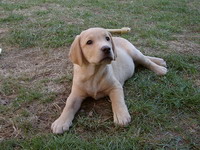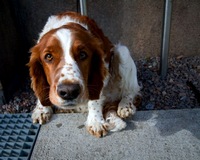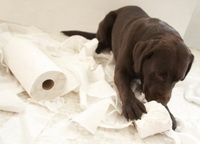Puppy rearing
 Rearing a dog from an early age is the basis for further development and socialization. “Convenient” in all respects a dog, will not give you trouble and those around you, which is especially important in urban environments.
Rearing a dog from an early age is the basis for further development and socialization. “Convenient” in all respects a dog, will not give you trouble and those around you, which is especially important in urban environments.
The purpose of education is to instill in the animal the development of behavioral skills, to ensure the normal development of the nervous system and the development of the required qualities. It is a raised dog that will give you real pleasure in communicating with it, will be a reliable partner and faithful companion. It must be remembered that the average dog’s life is ten years. And how the life of a dog will be formed depends on the skills that were vaccinated in the early puppy age.
The basis of education rests on the understanding of the owner and the dog. Before you begin to spank sneakers on a small, fluffy ass, you need to understand how the puppy is guided in this or that situation. What seems to us to be leprosy and games actually has some basis.
Two months – at about that age, puppies usually end up in a new house. It is at this age, kids begin to actively explore the world. Torn clothes, bitten limbs of the owners, skinned wallpaper – a small list of “arts” – the consequences of exploring the environment. Yes. That is, trying to “tooth”, the puppy begins to learn adulthood, this is a natural need and you need to be prepared for this behavior of the baby.
Naturally, such pranks can not annoy, but try to pull yourself together, and take up the education. Toys – these are your first assistants in the battle for property and whole legs. Balls, rings, ropes, “bones” of the tendons – all this should be in the host’s arsenal. Distract the baby, switch his attention without irritation and aggression. While the puppy is small, use everyday commands, it can be commands “no”, “throw”. Before the start of the early evening – the general course of dog training, the “fu” command for the owner is taboo. This is a prohibitive command, and requires the dog to perform unqualified actions to stop undesirable actions. And from a small puppy, to demand such submission is at least useless, otherwise, there is no need to speak of any mutual understanding.
For the owner there should be a rule – the dog should be punished immediately after the offense. That is, if you came home and found a bitten shoe and a favorite book read to shreds, it is no use to punish. The puppy will not be able to bind the incident and punishment, already after some time. Especially since it’s all your fault. Leaving the house, remove all valuable (and not very), potentially dangerous, all that a dog can reach. Leave plenty of toys, but avoid giving your puppy old shoes as entertainment. A puppy will not be able to distinguish a worn shoe from a brand pair for a thousand euros, and when the latter is torn to shreds, it will absolutely not be able to understand the reason for the punishment.
Spend all your free time with your puppy. The pet should be absolutely calm about the collar and leash – this is a guarantee of productive walks. Any walk should be combined with the development of skills. Train your dog to react evenly to external stimuli – signals from cars running through children, cyclists, relatives, cats. A calm reaction to a stimulus is a guarantee that your dog, for example, does not run after a cat and does not fall under the nearest car.
The stick and the carrot are the approximate tactics of education. Moreover, if the “stick” is very conditional, then you should not spare strength and emotions on the “carrot”. Be sure to praise your puppy for the right actions – put all the joy you can into the reward word “good”! Repeat many times, and soon the puppy will expect your “ah, clever, ah well.” However, the prohibiting teams should not be forgotten. “Bad”, “no” – they give out in a harsh, stern voice. Do not be angry, but do not give the puppy even the slightest hint that you approve of his actions.
Education, it is not yet training. But without a mutual understanding with the dog, about the full training and speech can not be. Patience, patience and more patience. Do not break on a puppy, otherwise all previously made efforts may go to ashes. Find a cause-and-effect relationship to each act of the puppy, “climb into his skin,” and your efforts will not be wasted. For all your efforts, you will be rewarded with a faithful friend and a reliable, understanding comrade.


